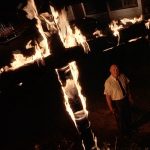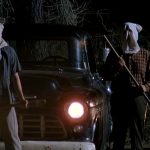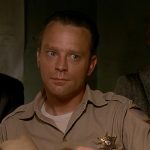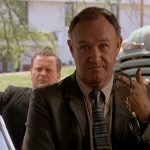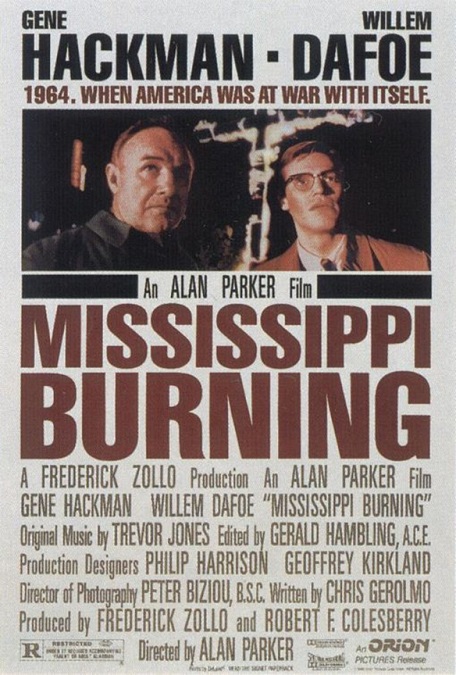
Mississippi Burning – 1988
This was an interesting film that kept my attention and was entertaining, but as I read about its history, I have to look at it under a slightly different light. It was still good, but I have to take it with a grain of salt. It was supposed to be based on true events, but when it was released, it was heavily criticized by people who had lived through the events as being mostly untrue. Not only was the movie accused of being racist because it portrayed black people only as scared victims, it told the story from a completely white point of view, using the Civil Rights Movement as a vehicle to make the film’s white protagonists the heroes.
In the very first scene, we see several police officers chase down and murder three young men, two white and one black, in cold blood. The main body of the film followed two white FBI agents, Alan Ward, played by Willem Dafoe, and Rupert Anderson, played by Gene Hackman, as they travel to the fictional town of Jessup County, Mississippi to investigate the disappearance of the three Civil Rights Activists.
And the movie was pretty consistent in its use of bad stereotypes. As I already mentioned, all the black people were portrayed as cowed and frightened victims who would rather stay silent than fight back about the inhuman injustices being perpetrated against them. All the white folks who were Mississippi natives were racists who thought of all black people as dirty animals. They hated all colored people with a passion. And those who were involved with the KKK were portrayed as not simply evil, but stupid, because they were all unashamedly vocal about their hatred of anyone who was not white.
According to the film, the two FBI agents go to Jessup County and start asking questions. They meet with heavy resistance and uncooperation from the local authorities, and silence from the colored residents. Agent Ward tries to question a black man in public, and the local KKK members beat him up, though he refused to talk. After that, Ward calls in more agents. Then, when an anonymous tip leads them to the missing activists’ car, an army of agents is called in.
Ward and Anderson each have different styles of investigating. Ward is by the book, and Anderson is more personal and passionate. Ward goes straight to questions while Anderson talks to a person to make them more at ease before hinting at his questions. And when the violence begins and quickly escalates to lynching and more murder, Anderson fights back with violence and intimidation tactics. And eventually, things get so bad that Ward agrees to try things Anderson’s way to solve the case.
Anderson also befriends the wife of one of the guilty officers, Mrs. Pell, played by Francis McDormand. He puts her off her guard and cleverly seduces her until she rats out her racist husband, Deputy Sheriff Clinton Pell, played by Brad Dourif. In retaliation, the deputy beats his wife badly enough to put her in the hospital.
But in the end, Anderson’s violent and underhanded tactics get the bad guys to start fighting each other, and in the process, expose themselves for the murderers they are. The black people meekly grieve for their losses and sing a spiritual to lament their persecution. Really… not very realistic. Black people were angry and many of them fought back, some meeting violence with violence, murder for murder. It was a dangerous place and time in history.
True, some of the performances were praised. Both Defoe and Hackman can rarely be faulted as actors, but McDormand’s performance was also wonderful. And I was also impressed with Dourif and some of his fellow KKK members and extreme racists, Gailard Satrain, R. Lee Ermey, Michael Rooker, and Stephen Tobolowsky. And lest I forget, I have to mention a good performance from another actor I know, Kevin Dunn, as agent Ward’s chief assistant, Agent Bird. Strangely enough, there were no notable black characters in this whitewashed film. So don’t go into the movie expecting a true historical depiction of either the Civil Rights movement, or an account of the real events that took place in Neshoba County, Mississippi in 1964. Just know that it a fictionalized account of real events that are only loosely based on reality.


